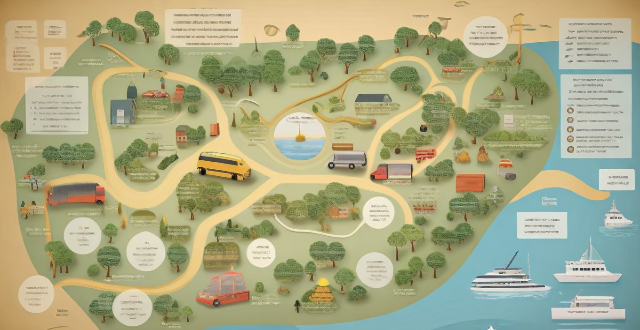Climate change has significant implications for different asset classes, including real estate, commodities, financial assets, and alternative investments. Real estate values can be affected by rising sea levels, heat island effects, and water scarcity. Commodities such as energy, agricultural products, and metals may face supply disruptions and changes in demand. Financial assets like stocks and bonds may be impacted by carbon risk and the increasing importance of environmental, social, and governance factors. Alternative investments, including private equity and venture capital, may see increased interest in clean technology and sustainable real estate. Overall, investors must consider these climate-related factors when making investment decisions and incorporate sustainability into their portfolios.

Implications of Climate Change on Different Asset Classes
Real Estate
Coastal Properties
- Flood Risk: Rising sea levels increase the risk of flooding, reducing property values.
- Insurance Costs: Higher flood risks can lead to increased insurance premiums.
- Regulatory Changes: Government regulations may restrict development in high-risk areas.
Urban Properties
- Heat Island Effect: Urban areas can experience higher temperatures, affecting demand for air conditioning and energy costs.
- Water Scarcity: Droughts can impact water availability, affecting property values.
Agricultural Land
- Soil Quality: Changes in temperature and precipitation patterns can affect soil quality and crop yields.
- Pest and Disease Management: Warmer temperatures can lead to increased pest and disease pressures.
Commodities
Energy
- Renewable vs. Fossil Fuels: Climate change can shift investment from fossil fuels to renewable energy sources.
- Supply Disruptions: Extreme weather events can disrupt oil and gas production.
Agricultural Products
- Crop Yields: Changes in temperature and precipitation patterns can affect crop yields and prices.
- Livestock Health: Heat stress can impact livestock productivity and meat prices.
Metals and Minerals
- Mining Disruptions: Extreme weather events can disrupt mining operations.
- Supply Chain Impacts: Climate change can affect transportation routes and costs.
Financial Assets
Stocks
- Carbon Risk: Companies with high carbon emissions may face regulatory risks and investor scrutiny.
- ESG Investing: Environmental, social, and governance factors are becoming more important for investors.
Bonds
- Green Bonds: Issuance of green bonds is increasing as a way to finance climate-friendly projects.
- Municipal Bonds: Cities affected by climate change may face financial strains, impacting bond ratings.
Alternative Investments
Private Equity and Venture Capital
- Cleantech Investments: Investments in clean technology companies may increase due to climate change concerns.
- Sustainable Real Estate: Green buildings and sustainable urban development may attract investment.
Hedge Funds
- Climate Change Themes: Hedge funds may invest in themes related to climate change adaptation and mitigation.
- Risk Management: Hedge funds may use climate change data to manage portfolio risks.
In conclusion, climate change has far-reaching implications for various asset classes, affecting their values, risks, and investment strategies. It is essential for investors to consider these factors when making investment decisions and to incorporate sustainability into their portfolios.